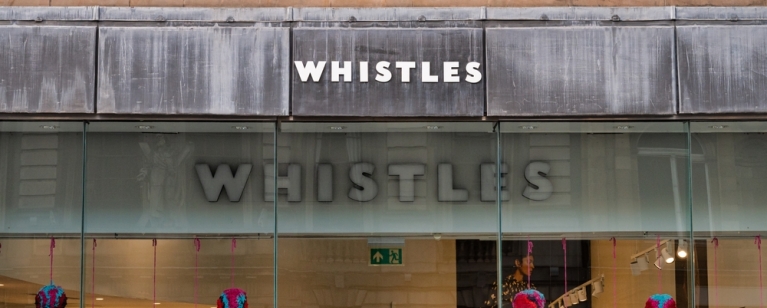
Between 2022 and 2024, Phase Eight, Whistles and Hobbs (premium womenswear brands, part of TFG London) worked with ETI to take significant initial steps to improve purchasing practices, reduce pressure on suppliers, and mitigate adverse impacts on workers. This case study explores how they progressed.
Why Responsible Purchasing Practices matter
Research shows that short-term planning, last-minute changes in order specification or volume, inaccurate forecasting and late payments all have negative effects on the management of orders and financial stability of suppliers. This in turn can lead to heightened risks to workers including excessive overtime and lower wages.
Commercial pressures on both margins and time to market can result in last minute changes in volumes and design and oversampling, to meet customer demand and maximise sales. This case study explores how companies can overcome silos between the Sustainability/CSR and commercial teams by developing understanding, communication and joint decision-making across departments to facilitate the implementation of responsible purchasing practices and reduce adverse impacts on workers.
The Implementation Community
The Responsible Purchasing Practices Learning and Implementation Community (LIC) is a group of 36 garment brands from Europe and the UK, brought together by ETI, Ethical Trade Norway, Fair Wear, the German Partnership for Sustainable Textiles (PST) and Solidaridad[1]. The Community had online meetings every two months for two years, exploring practical actions that can be taken to improve purchasing practices, structured according to the topics covered by the Common Framework on Responsible Purchasing Practices[2]. Every other session also included break out group discussions with manufacturers. Both CSR/Sustainability and commercial/design team members have attended the sessions, to understand the likely risks and impacts of their purchasing practices in the supply chain, and to hear from manufacturers, experts, and other companies about practical changes that can be made. The MSIs followed up with their member companies between the meetings, to support with action planning and implementation. One of the companies that the ETI supported through this process was TFG London.
TFG London’s involvement in the LIC
TFG London participated in the LIC, with a group attending each session from three of its womenswear brands, including CSR team, buyers and designers. They also had off-site cross-functional workshops for all three brands together, on each principle/topic to carry out the LIC exercises, embed learning, and brainstorm practical actions that could be taken. Hobbs has taken several practical steps to improve purchasing practices, which are outlined in the full case study below, and Whistles and Phase Eight are seeking to learn from this and implement similar changes.
Continue reading this case study below.
TFG London: Strengthening supplier partnerships
Footnotes
[1] The LIC was funded by the Initiative for Global Solidarity (IGS) implemented by Deutsche Gesellschaft für Internationale Zusammenarbeit (GIZ) GmbH (supported by the German Federal Ministry for Economic Cooperation and Development) and the Sustainable Textile Initiative: Together for Change (STITCH) (supported by the Dutch Government).
[2] The Common Framework for Responsible Purchasing Practices was developed in 2022 by The Ethical Trading Initiative, Ethical Trade Norway, the German Partnership for Sustainable Textiles (PST) and Fair Wear. The CFRPP is supported as the central reference point on purchasing practices in the garment industry by ETI, ET Norway, Fair Wear, PST, Solidaridad, Ethical Trade Denmark and the Fair Labor Association.
